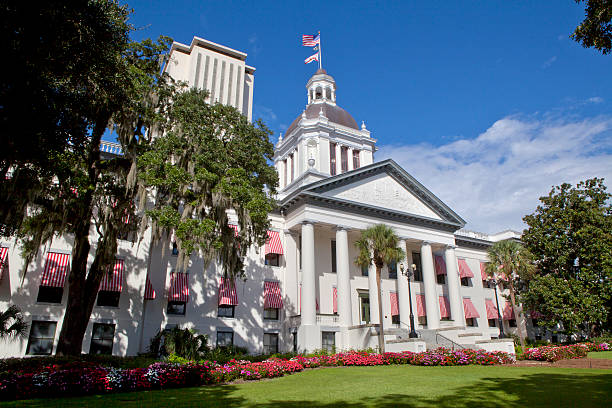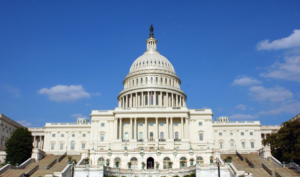Another challenge to 2020 Florida felon-voting law to be heard Thursday

The 11th U.S. Circuit Court of Appeals last September upheld Florida’s right to bar ex-felons from voting if they owe restitution, court fines and fees in a landmark victory for Gov. Ron DeSantis and the Republican-dominated Legislature.
The 6-4 decision ensured the vast majority of the 80,000-plus of Florida’s 1.4 million ex-felons who had registered to vote by June 2020 were prohibited from casting ballots in November.
“Despite today’s ruling, the fight is not over,” ACLU Florida Legal Director Daniel Tilley vowed when the court issued its a 200-page ruling on Sept. 11, 2020.
And, indeed, it is not.
While the ACLU has not, as yet, secured a hearing before the U.S. Supreme Court to appeal the 11th Circuit decision, a Southern Poverty Law Center (SPLC) lawsuit against 2019’s Senate Bill 7066 remains on the docket and will be heard Thursday in Atlanta before a three-judge panel of the 11th Circuit.
While the appellate court dismissed ACLU’s challenge under the 14th and 24 amendments, the SPLC is arguing on behalf of two females with felony convictions, asserting SB 7066 violates the 19th Amendment, which extended to women the right to vote.
“Neither the Supreme Court nor this court has ever addressed the appropriate legal standard that should be applied to a 19th Amendment claim,” SPLC lawyers argue in their brief. “This court and the parties will benefit from oral argument on a matter of first impression prior to the rendering of a decision of such precedential value.”
Plaintiffs Rosemary McCoy and Sheila Singleton, two Black women with felony records, say they denied the right to vote under SB 7066 because their criminal records prevent them from getting jobs that pay enough for them to pay court-ordered restitution.
Florida courts issued more than $1 billion in fines and fees between 2013-18, according to the Florida Court Clerks and Comptrollers Association.
“Appellants’ lawsuit requires the state of Florida to acknowledge the compounding impact of race, class, and gender in a law like Senate Bill 7066 that ties the payment of legal financial obligations to the right to vote, but artificially disentangles the continuing burdens low-income women of color face in satisfying those financial obligations,” SPLC attorneys contend.
The SPLC is appealing a ruling by U.S. District Judge Robert Hinkle, who dismissed their 19th amendment argument earlier this year.
Hinkle is the same judge who upheld the ACLU’s lawsuit against SB 7066 after a year-long federal legal battle that culminated in an eight-day May trial in his Tallahassee courtroom.
Nearly 65 percent of Florida voters in November 2018 approved Amendment 4, which restored voting rights for felons, excluding those convicted of murder and sexual assault, after “completing sentences.”
During the 2019 legislative session, the GOP-controlled Legislature adopted SB 7066 as “enabling legislation,” which interpreted “completing sentences” to mean paying all legal obligations, including court fees, fines and restitution.
In his May 2020 decision, Hinkle called SB 7066 a “pay-to-vote system” that imposes “a tax by any other name” and required the state ascertain how much a felon owes within 21 days of a status request or voting rights are automatically restored.
But the 11th Circuit shot Hinkle’s ruling down in an opinion penned by Chief Justice William Pryor.
“Fines, which are paid to the government as punishment for a crime, and restitution, which compensates victims of crime, are not taxes,” Pryor wrote. “Court fees and costs imposed in a criminal sentence fall within this definition: they are part of the state’s punishment for a crime. They are not taxes.”
This article was originally posted on Another challenge to 2020 Florida felon-voting law to be heard Thursday





